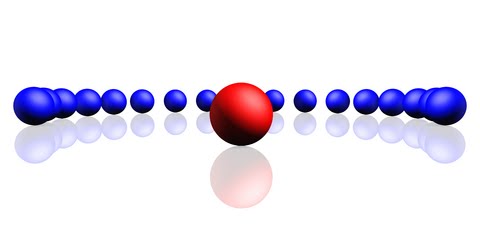 |
| http://www.guidedogs.org/ |
A few days ago, a friend invited me to an open house at the Palmetto, Florida, location of Southeastern Guide Dogs, where dogs are bred, raised and trained to serve people with disabilities. The most talented become guide dogs for the blind, but some become therapy dogs, or family pets for children with special needs. Until I visited, I never realized how hard these dogs work to learn how to help people, and how much heart the dogs put into it.
I wondered: Why are these beautiful dogs so happy and eager to learn and serve? Why are they so dedicated?
But as I watched the dogs with the puppy raisers and the trainers and the volunteers, the answer was obvious: unconditional love. The dogs are loved from the moment they are born, and they love back, with no judgment. The beautiful feeling of pure love, and the serenity and safety of that feeling, permeate all aspects of that amazing training center. The dogs are not afraid.
It brought to mind an NPR segment I had heard recently about the rescue of the Pit Bulls from the squalid dog fighting center in which Michael Vick was involved. The judge in the case insisted the dogs be evaluated, one by one, not simply euthanized. And the people who went to evaluate the dogs reported having the feeling the dogs were longing for love, only they were terrified, so they would approach, and then cower. But given patient, unconditional acceptance, almost all of them came around and responded with loyalty and affection. Love was absent in their lives until they were rescued, but, once felt, its power still drew goodness from them.
It brought to mind an NPR segment I had heard recently about the rescue of the Pit Bulls from the squalid dog fighting center in which Michael Vick was involved. The judge in the case insisted the dogs be evaluated, one by one, not simply euthanized. And the people who went to evaluate the dogs reported having the feeling the dogs were longing for love, only they were terrified, so they would approach, and then cower. But given patient, unconditional acceptance, almost all of them came around and responded with loyalty and affection. Love was absent in their lives until they were rescued, but, once felt, its power still drew goodness from them.
Only hours after encountering the dogs, I saw another manifestation of the power of unconditional love on a small segment about CNN heroes. Efren Penaflorida, a young man from the slums in the Philippines, who grew up in a shack near a dump, constantly threatened by gang members, chose to educate himself, and then chose to educate other children in the slum. He loads up a pushcart with books and pencils and paper and
 |
| Efren Penaflorida at work |
whatever teaching tools he can gather and pushes faithfully into the slums, setting up in any empty spaces he can find, inviting children to learn with him and find their own hearts and minds.
He had a choice. He could have choked on the bitter fruit of his youthful misery and become what he saw around him. To transcend a cruel life is to step into unconditional love, turning away from conditional hate and fear, despair and distrust, to embrace what is universal and constant. Efren realized that circumstances cannot destroy love, and the hope it awakens. Why do the children gather around him? They respond to the respect he has for who and what they are at the core, regardless of the fact they are barely surviving at the frayed, grimy edges of poverty. They respond to his unconditional love. In those moments around the pushcart, the children are not afraid.
Where there is love, good things happen. When love is absent, fear lurches in. But love and fear cannot abide in the same space at the same time.
When we look around, we see examples everywhere, across all of life. We see the good fortune of those who are loved and cherished from birth, although that fortune is shared by too few in this world. But we see, too, that love can reach through the worst of circumstances to the heart, like a taproot finding the life-giving water beneath the roughest and driest of soils.
Look around at so much that is happening now, and see how fear lays waste the best of human intentions and creates a barrenness that wilts the soul. But look, too, to see that love does not die. It waits, like the seeds in the dessert, to bloom profusely with the first drops of encouragement.
Martin Luther King, Jr. said it quite clearly: "Love is the only force capable of transforming an enemy into a friend."
Where there is love, good things happen. When love is absent, fear lurches in. But love and fear cannot abide in the same space at the same time.
When we look around, we see examples everywhere, across all of life. We see the good fortune of those who are loved and cherished from birth, although that fortune is shared by too few in this world. But we see, too, that love can reach through the worst of circumstances to the heart, like a taproot finding the life-giving water beneath the roughest and driest of soils.
Look around at so much that is happening now, and see how fear lays waste the best of human intentions and creates a barrenness that wilts the soul. But look, too, to see that love does not die. It waits, like the seeds in the dessert, to bloom profusely with the first drops of encouragement.
Martin Luther King, Jr. said it quite clearly: "Love is the only force capable of transforming an enemy into a friend."

